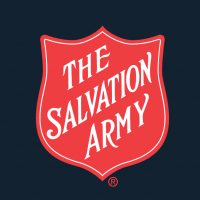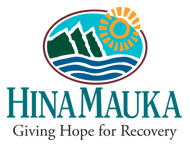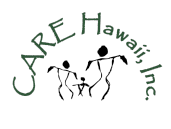Castle Medical Center
Drug Rehab Center in Kailua, Hawaii
Castle Medical Center, located in Kailua, Hawaii, is a state-licensed and accredited facility that is dedicated to providing comprehensive, personalized care for mental health and substance abuse issues, utilizing a range of inpatient and outpatient services, such as 12-step Facilitation, Cognitive Behavioral Treatment (CBT), dual-diagnosis treatment, and other associated services, while accepting private health insurance as payment.
About Castle Medical Center in Hawaii
Castle Medical Center, located in Kailua, Hawaii, specializes in providing addiction treatment and mental health services. Recognized for its commitment to diversity, inclusion, and community health, it offers a unique, person-centered approach to recovery, focusing on outpatient programs for those battling substance abuse and mental health issues.
- Person-Centered Outpatient Programs: Tailored to meet individual needs, ensuring a more personalized recovery journey.
- Comprehensive Addiction Services: Includes crisis and detox services, medication-assisted treatment, and educational therapy.
- Accredited Care: Licensed by the Joint Commission and the Hawaii Department of Health, ensuring high-quality standards.
Castle Medical Center is accredited by the Joint Commission on Accreditation of Healthcare Organizations and licensed by the Hawaii Department of Health, highlighting its commitment to providing the highest quality of care. The center's focus on outpatient treatment programs caters to individuals requiring less intensive supervision.
The facility treats a range of addictions and psychiatric disorders, offering services such as 24-hour assessment and referral, individual and group counseling, and medication management. Treatment methods include crisis intervention, detox services, and an intensive outpatient program, designed to support individuals at various stages of recovery.
Genders
Ages
Modality
Additional
Accreditations
State License
Conditions and Issues Treated
Substance abuse is defined by the continued use of drugs or alcohol despite negative consequences, such as legal or work problems. It can be treated using a variety of services, including therapy and medication.
Substance abuse treatment is beneficial for:
- People who have been using drugs or alcohol for a long time.
- People who have been using drugs or alcohol to cope with stress, anxiety, or depression.
- People who have a mental health disorder in conjunction with substance abuse.
- People who continue to use drugs or alcohol despite the harmful effects they cause on their own life and the lives of others.
- People who have had multiple failed attempts at recovery without medical assistance.
If you believe that addiction treatment is right for you or a loved one, you can contact your primary care physician, or search for addiction treatment centers in your area. Treatment is beneficial to people who are motivated towards recovery, and who understand the benefits of professional care.
Opioid addiction is a common form of addiction, often caused by prescription drugs that are abused. Addiction is treated by detoxifying the body and following up with therapies to correct behavior and target the root of the problem.
Most opioid addiction begins with patients being prescribed painkillers after an injury or surgery. The body becomes used to the chemicals in these medications and soon no longer responds to their presence. As a result, addicts seek out stronger opiate-based medications like Oxycodone to compensate for the lack of effectiveness.
The most dangerous aspect is that these addictive behaviors often get carried over onto illicit drugs like heroin, which are increasingly potent and result in lower life expectancies.
Levels of Care Offered
This center offers a variety of custom treatment tailored to individual recovery. Currently available are Aftercare Support, Inpatient, Outpatient, Partial-Hospitalization, with additional therapies available as listed below.
The inpatient rehab at Castle Medical Center promises an intense and effective treatment. Inpatient rehabs are particularly recommended for those with a severe addiction to drugs. Detoxing at a rehab center ensures that the patient receives 24-hour medical supervision to ensure the best possible chance of recovery. Medical staff is readily available to intervene in case of withdrawal symptoms or other complications. This is not the case with outpatient treatment, where patients may be discharged after the detoxification process is complete.
Inpatient facilities provide residential and holistic treatment, with access to experienced medical professionals and rehab specialists. This ensures the best possible recovery and is recommended for patients with severe addiction seeking drug treatment.
Outpatient treatment programs are less intensive than an inpatient program. Participants live at home while working or going to school. Benefits include being able to continue relationships with family, friends, and work/studies. Treatment includes educating patient on addiction to drugs, medication, and counseling. Benefits include being able to continue relationships with family, friends, and work/studies. Treatment includes educating patient on addiction to drugs, medication, and counseling. Counseling sessions are for either individual or group.
A Partial Hospitalization Program is the safest way for a person suffering from addiction to get treatment without putting their family at risk. The addict has the freedom to check in and out of treatment, yet they still receive outside guidance and confinement if needed to beat their addiction.
An addict in a Partial Hospitalization Program will meet with medical and psychological professionals and undergo drug testing, all of which can lead to a diagnosis and the beginning of an effective treatment plan. Treatment can include individual counseling, group therapy, family therapy, community support sessions, and more.
Aftercare Support in drug rehab is crucial because it helps people stay sober after treatment. The benefits of Aftercare Support are that it provides a pathway that will help people get sober for life. It supports healing at all levels, physical, mental, emotional, and spiritual.
Therapies & Programs
Individualized Treatment is essential because it gives addicts the ability to participate in a program that meets their unique needs. An addict should work with professionals who understand what they’re going through, especially if the addict is actively using.
Trying to find a treatment program that meets your needs can be challenging. It’s even more complicated if you don’t know what kind of treatment you need. Being able to have professionals who are experienced with treating your situation is key to getting sober. Finding the right treatment program for an addict is difficult, but it’s even harder without communicating with those who have experience treating your specific situation.
Family dysfunction can often be the underlying cause of substance abuse. To get sober, you need to find a different way to cope with the pain in your life. Family therapy can help you and your family deal with old issues that may trigger substance abuse. It will help everyone understand why each member of the family feels and acts the way they do. It can give everyone new tools to manage their emotions so that they don’t want to drink or do drugs.
A person looking for drug recovery should know that group therapy is an essential tool. Group therapy provides accountability and friendship to people with addiction. It is recommended as a lifetime treatment habit. Group therapy occurs in a group setting as opposed to a one-on-one setting. It benefits patients by providing a feeling of support and letting them know they are not alone. Patients at Castle Medical Center also learn to build trust and understanding and gain perspective through discussions.
Dialectical behavior therapy is a type of cognitive-behavioral therapy that focuses on eliminating specific negative thoughts that can potentially lead to an individual inflicting self-harm. It helps treat patients exhibiting uncontrollable emotions, intense mood swings, and borderline personality disorders.
The term “dialectic” means the integration of opposites. In the substance abuse context, dialectical behavior therapy refers to accepting the patient’s addiction and changing their thoughts and behavior. It improves life skills such as controlling intense emotions without reacting impulsively, resolving interpersonal conflicts effectively, and promoting awareness about self and others.
Cognitive behavioral therapy (CBT) is a type of psychotherapeutic treatment that is focused on changing negative ways of thinking that contribute to addictive behavior.
Cognitive behavioral therapy is beneficial for:
- People who are seeking to overcome addictive behavior
- Those who struggle with addictive behavior and mental illness
- People who have a genetic history of addiction in their family
- Those who don’t want to depend on medications
- Those who need a more practical treatment approach
Addicts seeking sobriety can find quick results with Rational Emotional Behavior Therapy. This type of counseling offered by Castle Medical Center replaces negative and self-limiting thoughts with positive and productive behaviors. This allows addicts to move forward without having to deal with ongoing treatment throughout their lives.
The 12-step program is one of the most common forms of addiction treatment today. It consists of attending meetings and working with a sponsor to follow the 12 steps outlined by Alcoholics Anonymous. This method is not for addicts who are unwilling to or have no desire to quit using and so is best utilized when paired with other treatment methods.
Contingency Management (CM) is an approach to addiction treatment that applies behavioral psychology to achieve abstinence or improved health outcomes. Recovering addicts are more likely to remain abstinent and improve their health outcomes when rewarded for not using drugs or engaging in other rewarding activities. CM is effective for treating opioid, alcohol, and nicotine dependence.
Payment Options Accepted
For specific insurance or payment methods please contact us.
Is your insurance accepted?
Ask an expert, call (888) 674-0062
Additional Details
Specifics, location, and helpful extra information.
Kailua, Hawaii 96734 Phone Number(808) 263-5500 Meta DetailsUpdated April 15, 2024
Staff Verified
Castle Medical Center Patient Reviews
There are no reviews yet. Be the first one to write one.
Kailua, Hawaii Addiction Information
Hawaii has one of the highest rates of drug abuse in the nation. Methamphetamines and marijuana are the most common drugs involved in drug-related crimes in Hawaii. The state loses $500 million every year due to methamphetamine abuse, according to the Hawaii Meth Project. More than 1 million prescriptions for prescription drugs are given out every year.
Prescription painkillers and heroin are two of the most commonly abused drugs in Saint Clair Shores, Michigan. The number of overdose deaths involving opioids increased by 544% between 2002 and 2016. This is likely due to the easy availability of drugs and the high levels of poverty and unemployment. The Saint Clair Shores, Michigan area offers inpatient and outpatient rehab and 12-step programs and support groups.
Treatment in Nearby Cities
- Honolulu, HI (8.3 mi.)
- Hana, HI (122.1 mi.)
- Kealakekua, HI (175.2 mi.)
- Mountain View, HI (213.1 mi.)
- Wailuku, HI (87.6 mi.)
Centers near Castle Medical Center
The facility name, logo and brand are the property and registered trademarks of Castle Medical Center, and are being used for identification and informational purposes only. Use of these names, logos and brands shall not imply endorsement. RehabNow.org is not affiliated with or sponsored by Castle Medical Center.








